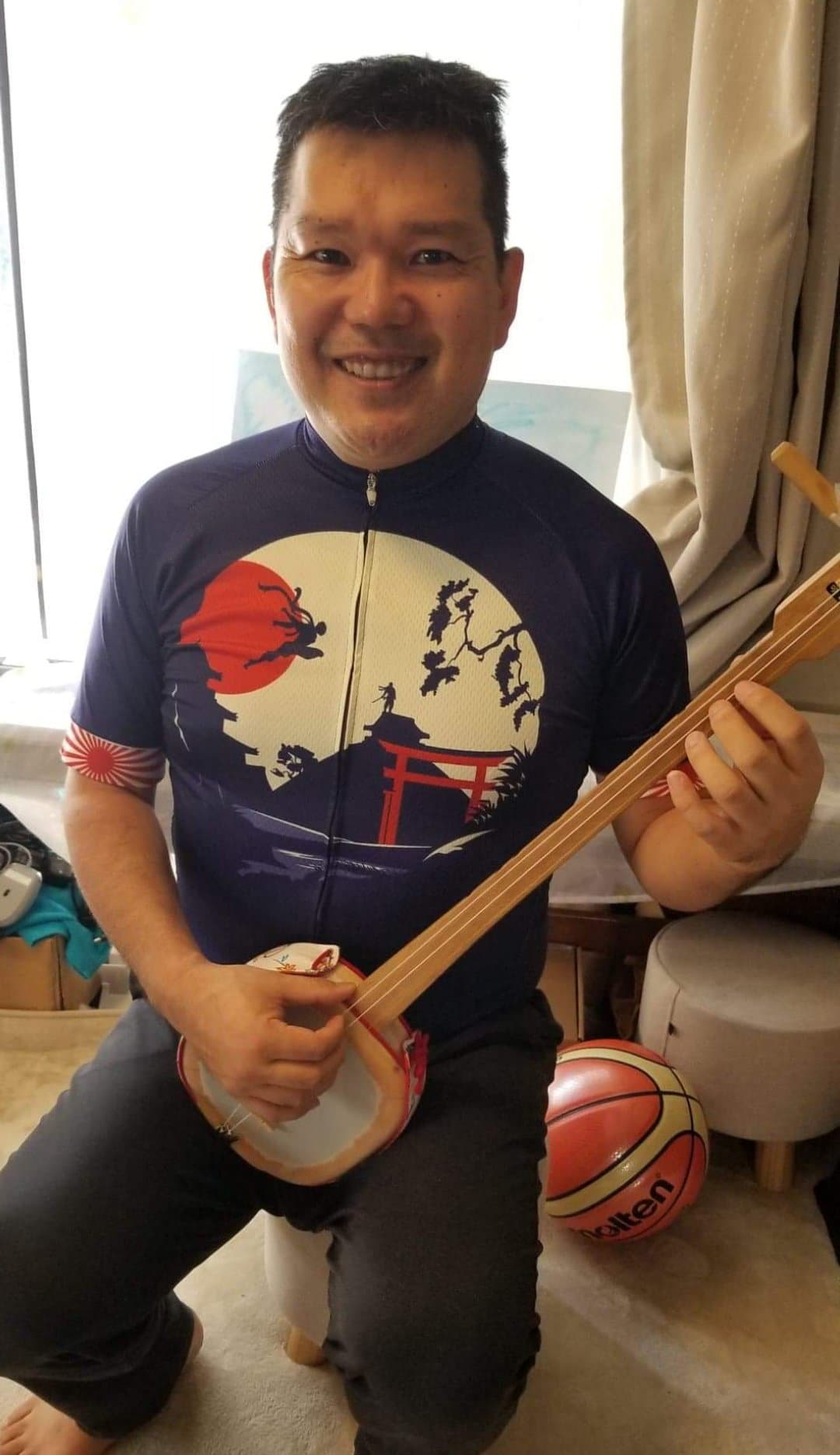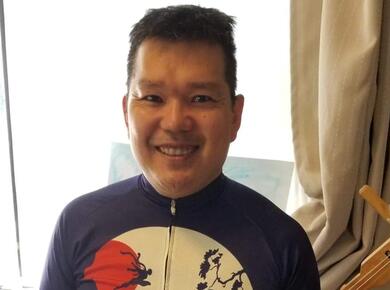Posted: August 12, 2020
Verse 1: Esuno Kokoro uchini (The heart of Jesus is reflected in my heart)
Verse 2: Esuno Heiwa uchini (I have the peace of Jesus in my heart).
Mitsuru Ishido wrote this song to encourage Nasu Keiko, a fellow Mennonite church member who was sewing masks to donate to refugees, foreign students and a church member with lung problems. He based the music on the pentatonic scale of Okinawa and plays it on sanshin, a three-stringed traditional Japanese instrument used in the Okinawa island region of Japan.
There is an history of peace and war in Okinawa. Okinawa was once a Ryukyu kingdom, and from that time it had the tradition of being an island of peace; an island without weapons. For 300 years, Ryukyu kept its independence through its diplomacy of music and dance instead of the sword.
The heart of Jesus as the “prince of peace” and the “heart of peace” of Ryukyu islands have this common witness, so I tried to use the traditional scale of Ryukyu. I played the song on the Okinawan shamisen (sanshin), a traditional instrument that uses three strings and snake skin-drum.

used in the Okinawa Island region of Japan
In modern times, the Ryukyu Kingdom was annexed to the Shimadzu Han of Japan. Before the second World War, construction of military equipment was carried out. Today, the role of a strategic base called the “Keystone of Pacific” is being enforced, contrary to the traditions of the island peace.
During World War II, the most intense ground battle in Japan took place in Okinawa. In order to protect the main headquarters of mainland Tokyo, many civilians and soldiers were killed during time-consuming operations. They hid themselves in limestone caves called Gama, but at the end civilians were forced to choose death rather than being caught by the enemy and potentially leak information.
This led to the order of “mass self-determination” (mandatory suicide by majority). The tragedy of a man in a family killing his mother or daughter by hand and finally attempting to commit suicide has left many wounds.
After the war, residents were detained in concentration camps. Hunger became prominent as the U.S. military base took homes and fields away.
However, amid the crippled life in the concentration camps, Okinawans drew on their peace tradition through music. They survived by creating a musical instrument made from cans that were picked up from the garbage. These are called Trash Can Sanshin.
Okinawa’s music and peace loving mindset has never died. Although trampled many times, the attitude of living on the foundation of peace and music has kept Okinawan music alive to the present day. Mitsuru Ishido is the General Council representative for Tokyo Chiku Menonaito Kyokai Rengo, a Mennonite church in Japan.
—Mitsuru Ishido is the General Council representative for Tokyo Chiku Menonaito Kyokai Rengo, a Mennonite church in Japan.
This story was published in the Peace Sunday 2020 Worship Resource package.



Join the Conversation on Social Media
FacebookTwitterInstagramFlickrYouTube